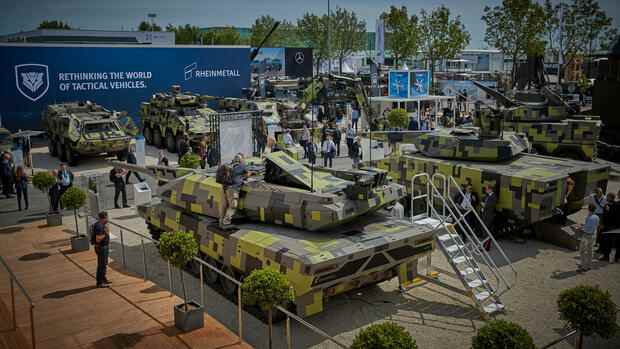Dusseldorf The Ukraine war put the German economy to the test. Almost overnight, many companies were faced with the question of how to behave towards Russia. This applies above all to those sectors that are not actually subject to the sanctions regime with which the West reacted to the war of aggression. The war thus became a touchstone for the credibility of these companies. What is more important: profitable business relationships or moral values?
Even before the war, many companies were discussing their “purpose”, the purpose of existence beyond making money. “Even if the management of many companies is currently being challenged by many crises at the same time, the topic of purpose has not disappeared from the scene,” says Niklas Schaffmeister, Managing Partner of the management consultancy Globeone, which specializes in the topic. “We are observing that some companies are even better at clarifying their purpose during the crisis.”
This is the result of an as yet unpublished study in which Globeone analyzed the credibility of a total of 134 companies and organizations with a view to their promise of purpose and which is available exclusively to the Handelsblatt. More than 4,300 consumers were asked how they judged the individual brands in terms of sustainability, authenticity, honesty, profit orientation and future viability.
Familiar brands at the forefront
The result is a ranking based on the calculated “Purpose Readiness Index”, which reaches a maximum of 100 points. Those companies that consumers regularly encounter in everyday life land in the top spots. An example of this is the drugstore chain dm (76.5 points), which took first place – followed by the German Red Cross (75.1 points) and dm competitor Rossmann (73.1 points).
Top jobs of the day
Find the best jobs now and
be notified by email.
Traditional family businesses such as household appliance manufacturer Miele (5th place; 71.6 points) or the Bosch conglomerate (9th place; 71.1 points) are also considered to be particularly trustworthy.
“In the past few weeks, retailers in particular have successfully managed to position themselves as consumer advocates in price negotiations with consumer goods manufacturers,” says Schaffmeister. Because inflation is currently causing prices to rise everywhere, the commitment of supermarket chains such as Edeka (7th place), Rewe (12th place) and Aldi (14th place) to price stability is perceived as particularly positive.
At the other end of the chain are energy suppliers such as Eon (104th place) and RWE (119th place), which have recently attracted attention primarily through price increases as a result of the European energy crisis.
The bottom three are the three residential groups LEG, Deutsche Wohnen and Vonovia (positions 131 to 133) – followed by the tabloid “Bild” (position 134), which, from the point of view of those surveyed, is the least in line with its brand promise with 43.8 points.
“The fact that the residential groups are doing so poorly is also an effect of the rental price debate that has been going on in Germany for several years,” was the expert’s verdict. In addition, the housing groups, like the suppliers, had to push through price increases due to the rising costs. “All in all, this means that many consumers have the impression that the housing companies are not doing justice to their purpose of providing affordable housing in German cities.”
Rheinmetall rises
In earlier Globeone rankings, the residential groups occupied the last places. Because the study authors are constantly adding new brands to the basis of the study, a direct comparison of two rankings over time is not possible. However, the number of points achieved provides information about promotions and relegations.
For example, the armaments and automotive supplier group Rheinmetall (102nd place) was able to significantly improve its rating from 56.4 points in the previous year to 60.4 points – even though the company has hardly changed its brand communication since the last survey.
The fact that the armaments industry is currently finding it easier overall to justify its purpose to society due to the numerous geopolitical conflicts is likely to play a role here. The industry is currently trying to be recognized as sustainable in the planned EU social taxonomy. The set of rules is intended to expand the existing EU environmental taxonomy, which is intended to provide a definition for ecologically sustainable management, to include social aspects and is currently being developed.
In addition to individual companies, Globe One also considers entire sectors in its study – with non-governmental organizations such as the Red Cross (2nd place), ADAC (20th place) and Caritas (23rd place) doing best with an average of 70.5 points. This is followed by technology groups such as Carl Zeiss, Infineon and Siemens with a value of 68.3 points. Companies from the finance (58.4 points) and real estate (47.4 points) sectors are at the bottom of the list.
More: Russian authorities are calling on German companies to participate in partial mobilization.
